|
|
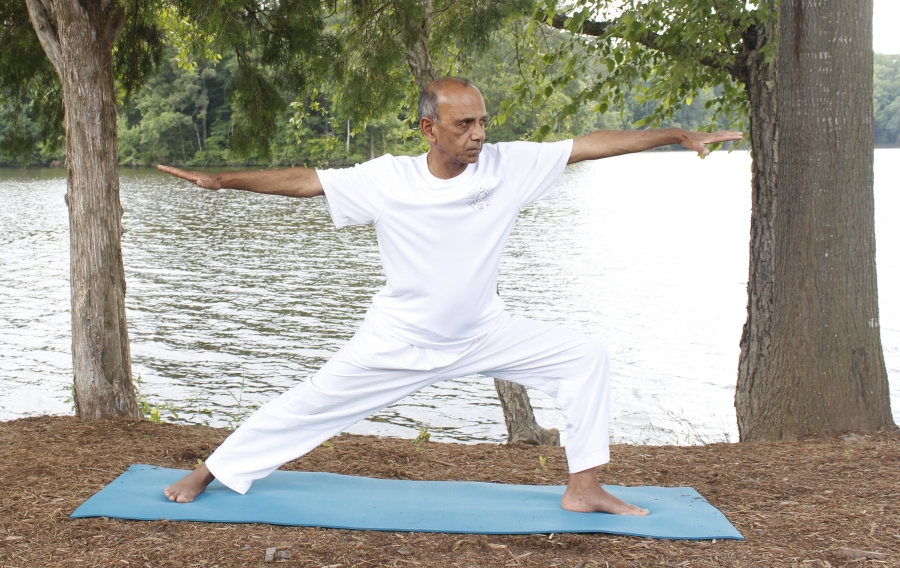 Virabhadrasana (Warrior2)
I am pleased to announce the next 21-day Yoga Immersion program. This will be the introductory Level 2 program. I invite you to join me on this exciting and deeply rewarding 21-day yoga journey.
Please note the class duration will be one hour and 45 minutes.
- What: 21-day yoga immersion, Level 2
- When: Monday, Oct 24 – Sunday, Nov 13, 2016
- Time: 6:00 AM – 7:45 AM
- Location: 4000 Bearcat Way, Suite 102, Morrisville, NC 27560
- Commitment:
- A firm commitment to complete the program without missing a day
- At the end of the program, continue the same practice at home for another 21 days to make it a life-long habit
- Fee: $150
- To register: Fill out the registration form, providing information in all the fields, and submit it online
In this program, we will be practicing some of the intermediate level asanas (physical postures) and pranayama practices that are not covered in the regular 21-day yoga program. These will include:
Continue reading »
In an earlier blog post, I talked about the concept of Kumbhaka – कुम्भक – (breath retention). As noted therein, breath retention can be done after a full inhalation, or after a full exhalation, or at any time during the breathing cycle.
A natural extension of Kumbhaka is the concept of the Bandhas – बन्ध – (energy locks). The bandhas are a very important part of the pranayama techniques as they help balance out the prana (the vital life force) in the system. As per the Hatha Yoga Pradipika, bandhas help us cleanse the chakras and allow the Kundalini Shakti (the dormant creative power) to awaken. The kundalini can then start its journey toward its final destination- the Sahasrara Chakra (thousand petal lotus), abode of the supreme consciousness represented by Lord Shiva, situated at the crown of the head.
There are three bandhas which are practiced as a part of the pranayama routine:
-
Mula Bandha – मूलबन्ध – (root lock)
- Uddiyana Bandha – उड्डियान बन्ध – (navel lock)
- Jalandhara Bandha – जालन्धर बन्ध – (chin lock)
- Maha bandha – महाबन्ध – (Great lock) – when all the bandhas are applied at the same time after full exhalation
Enjoy the guidelines for the bandha practices as given in the video here.
Continue reading »
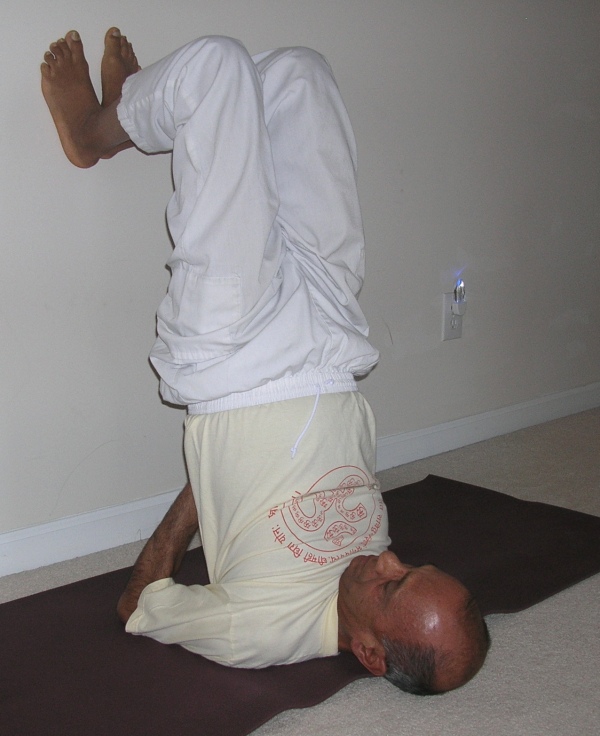 Sarvangasana with wall support
In a previous article, I discussed the Sarvangasana – सर्वाङ्गासन – (shoulder stand), along with Matsyasana (fish pose) and its variations.The technique discussed therein was appropriate for those who have adequate neck and shoulder strength so they can get into the pose without needing the wall for support. If you are a beginner to yoga practice or don’t have the required strength in the neck and shoulders and the core strength, you may need the support of the wall to help you get into the pose.
In this article, I will first discuss some possible variations to get into the pose while still not using the wall for support. If that doesn’t feel comfortable, then I’ll take you through the steps required for using the wall for support.
I hope you will enjoy practicing with the video sequence given below.
Continue reading »
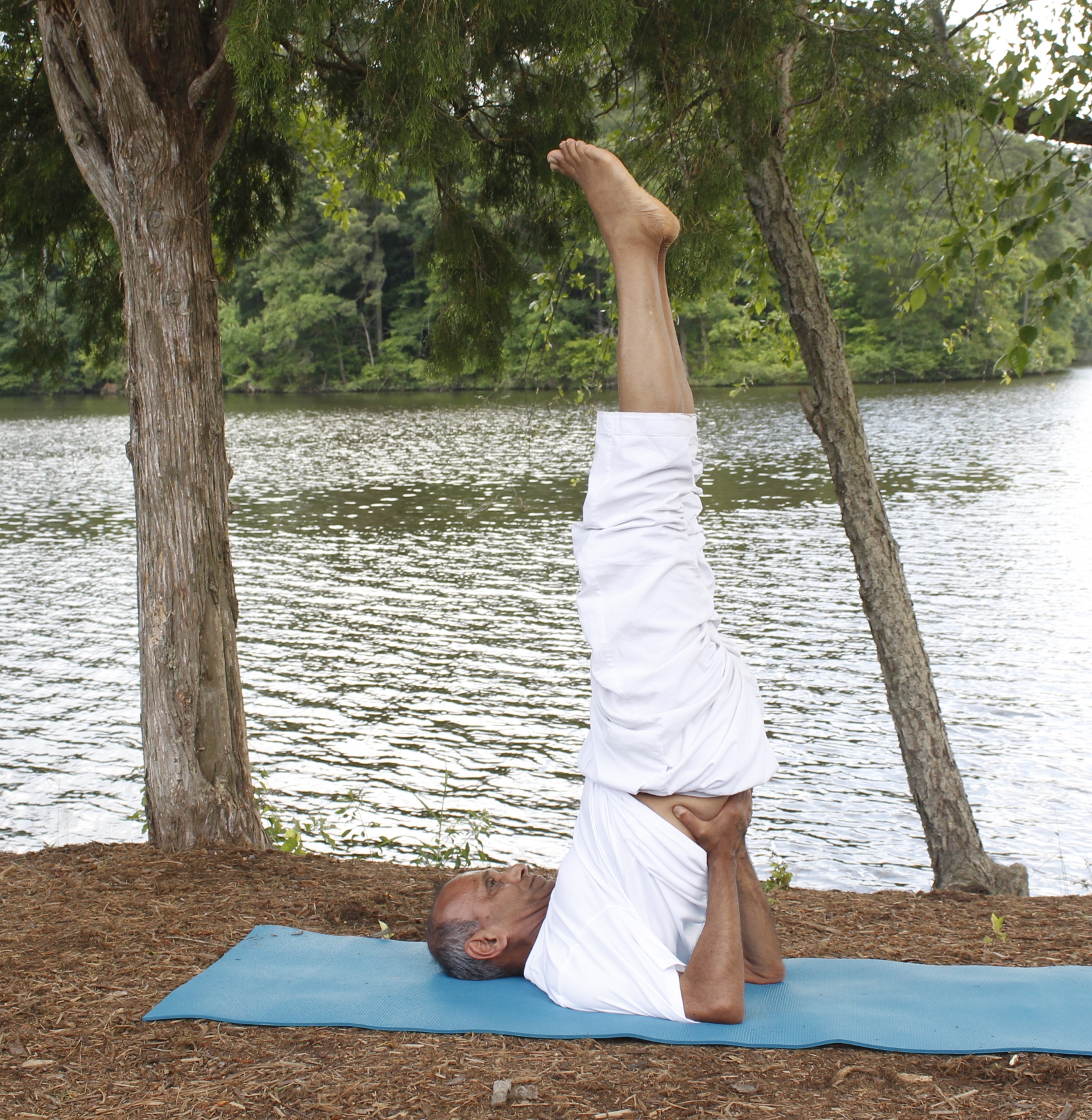 Sarvangasana (shoulder stand)
Sarvangasana – सर्वाङ्गासन – (Shoulder Stand) and Shirshasana (Head Stand) are two of the most commonly practiced inverted poses in yoga practice. They are considered intermediate level poses and should be practiced under the guidance of a qualified yoga instructor. In this article, I will be discussing the Sarvangasana (shoulder stand) along with some of the commonly practiced variations that you can attempt while in the pose. I will also be discussing the Matsyasana (Fish Pose) which is commonly practiced as a counter pose for Sarvangasana. The word "sarvangasana" can be broken into two words "sarvanga" and "asana". The word "sarvanga" is a compound word consisting of "sarva" meaning "all" and "anga" meaning "limbs". The word sarvanga implies that this pose, when practiced regularly, can bring benefits to every limb of the body. The beneficial effects of the pose are mainly achieved by harmonizing the endocrine system, in particular the thyroid and parathyroid glands.
I hope you will enjoy practicing with the video demonstration.
Continue reading »
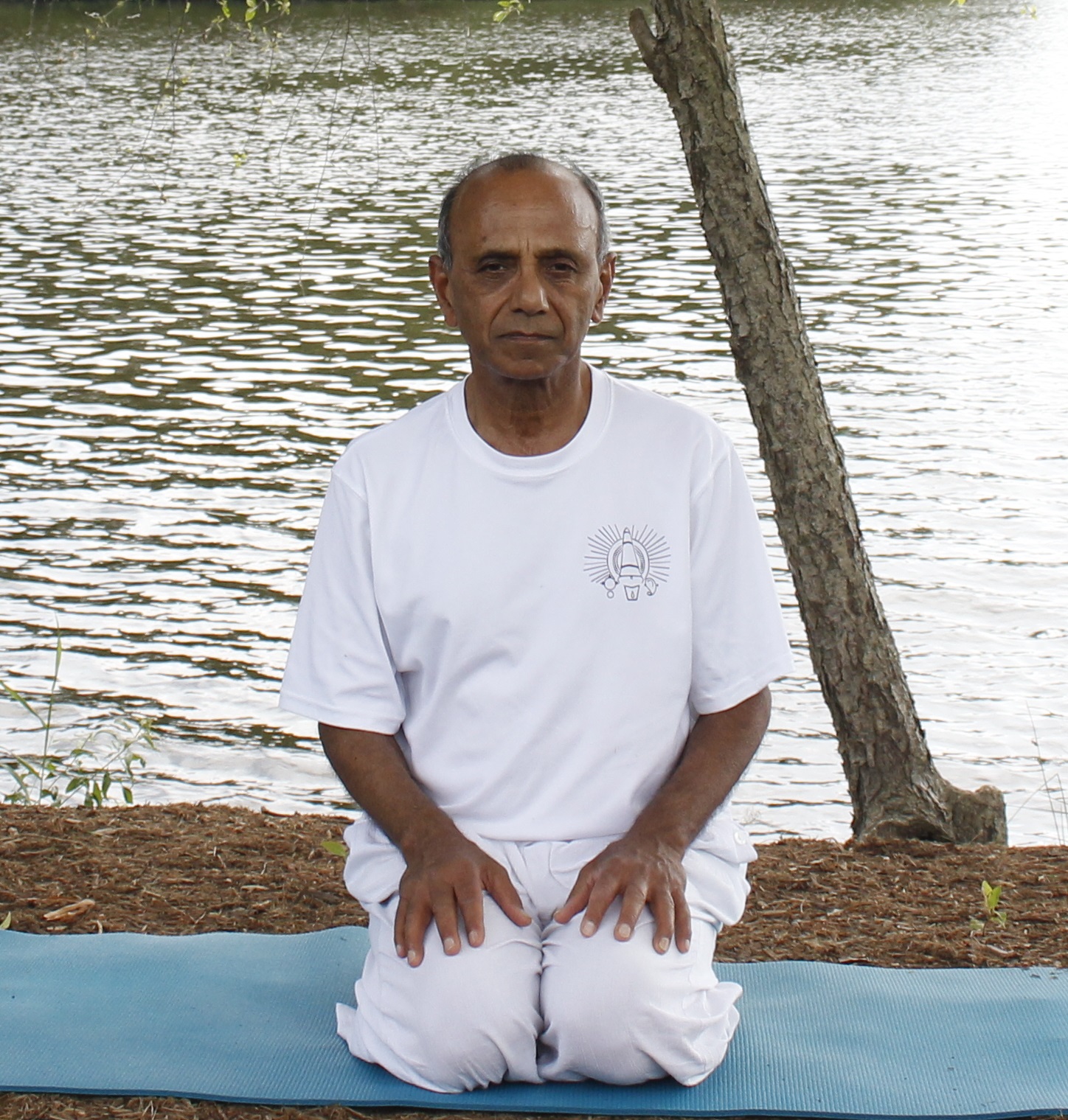 Vajrasana
In some of the earlier articles, I have discussed the concepts of Kumbhaka (breath retention) and the Bandhas (energy locks) as part of the common pranayama practices. In this article I would like to introduce kumbhaka and bandhas as an extension of the Kapalabhati practice.
If you have attended a yoga class with me, you are aware that the practice of Kapalabhati is an integral part of the yoga routine that we practice in the class. In fact, we practice at least one round of Kapalabhati at the beginning of the class, right after we do the cat and cow stretch (Marjarasana) as a gentle spinal warm up. In the last segment of the class again, we include more kapalabhati as part of the pranayama routine.
As a cautionary note I would like to emphasize here that these advanced practices involving kumbhaka and bandhas should be learned under the guidance of a qualified teacher. In general, you should practice the basic techniques of pranayama without kumbhaka and bandhas for at least six to eight weeks on a regular basis before attempting these advanced techniques.
I hope you will enjoy practicing with this video sequence.
Continue reading »
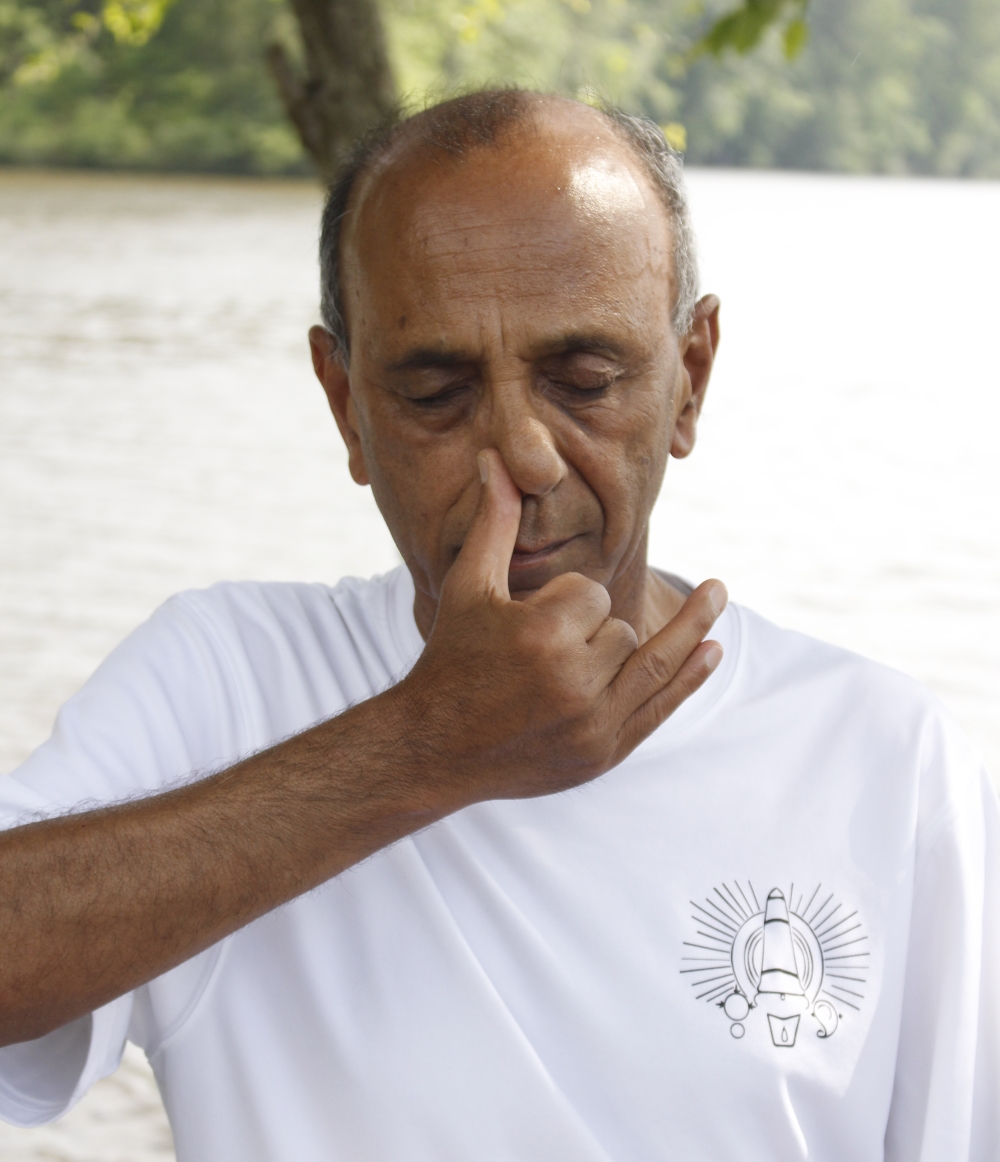 Vishnu Mudra
I am pleased to announce the next Pranayama intensive. In this program, we will be practicing some of the main pranayama techniques given in our ancient yoga texts. I will also discuss the underlying concepts in the practice of pranayama and all the wonderful benefits that the practice can bring us.
No prior pranayama or meditation experience is required.
Here are the particulars:
- What: 14-day pranayama intensive
- When: Monday, Sep 19 – Sunday, Oct 2, 2016
- Time: 6:00 – 7:30 AM
- Location: 4000 Bearcat Way, Suite 102, Morrisville, NC 27560
- Daily Routine: Light stretching (10-15 minutes), Pranayama (40 min), Relaxation (15 min), Yoga philosophy/meditation (15-20 min)
- Commitment: A firm commitment to follow this schedule and attend every day
- Fee: $90
- To register: fill out the registration form, providing information in all the fields, and submit it online
Continue reading »
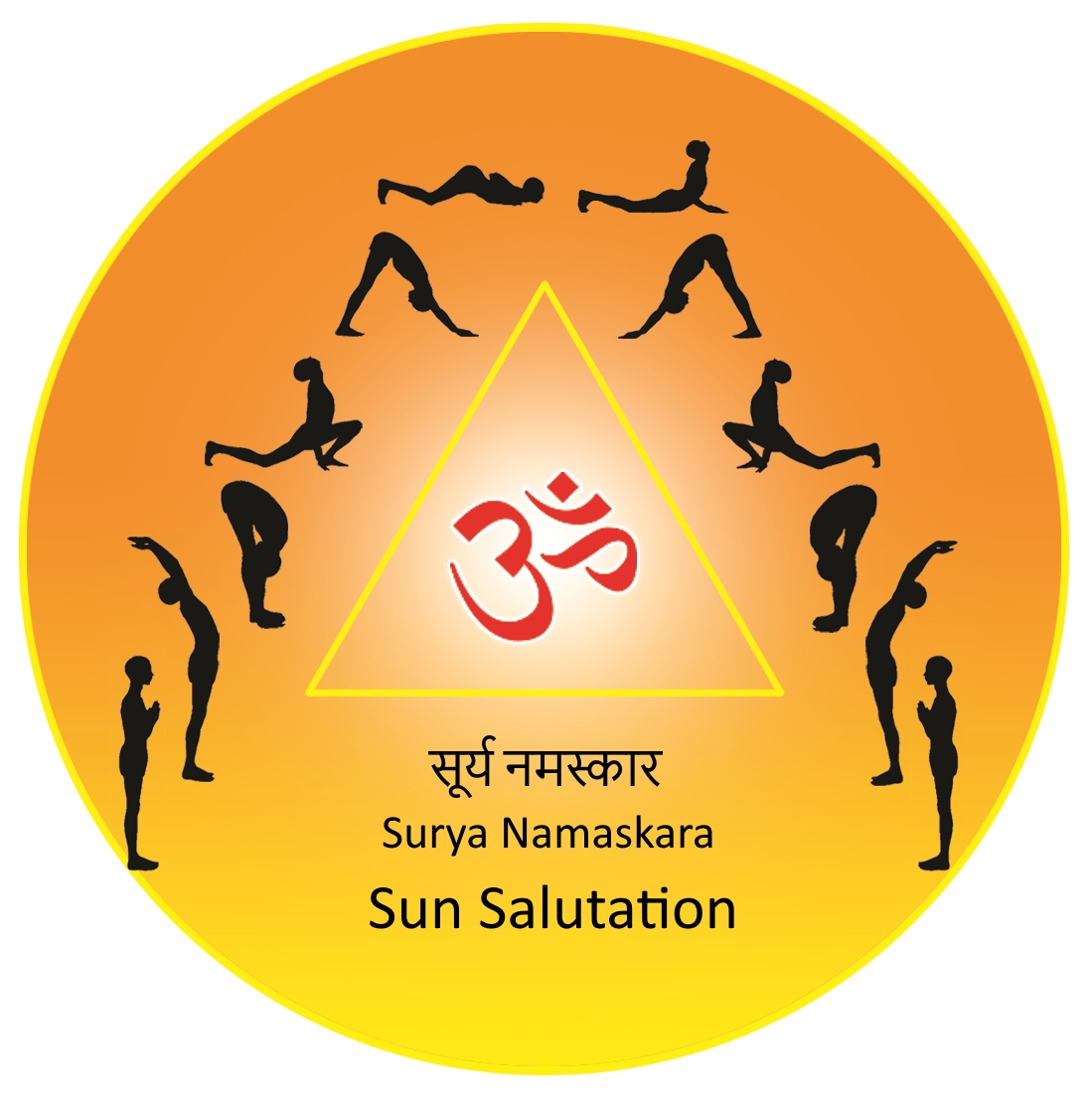
Sun Salutation
In Hindu mythology, the sun god is worshipped as a symbol of health and immortal life. It is also revered as the source of life and energy. The Rig Veda declares that "Surya is the Soul, both of the moving and unmoving beings". The Sun Salutation (Surya Namaskara – सूर्य नमस्कार) originated as a series of prostrations to the sun. Traditionally, it is performed at dawn, facing the rising sun.
From a historical perspective, Surya Namaskara (Sun Salutation) is not listed as one of the yoga practices in any of the traditional, ancient yoga texts. Two of the most commonly referenced texts are the Hatha Yoga Pradipika and the Gherand Samhita. In these texts there is no mention of the practice of Surya Namaskara.
However, Surya Namaskara has been practiced as a religious ritual for possibly thousands of years as a form of worship to the "Sun God". It is not clear as to what the exact nature of this ritual, in terms of the asanas/stretches performed, was in the ancient times. My assumption is that the Surya Namaskara sequence, as practiced today, is a gradual evolution from its ancient origins. In the classical Surya Namaskara sequence there are twelve moves/asanas. Each of these asanas is accompanied by the chanting of a mantra. There are twelve mantras, one for each move of the Surya Namaskara sequence. Each mantra represents a prostration to one of the twelve names or manifestations of the Sun god. In that sense, this becomes a very devotional practice. You can listen to a beautiful rendition of the mantra chanting here (click the play button)
Continue reading »
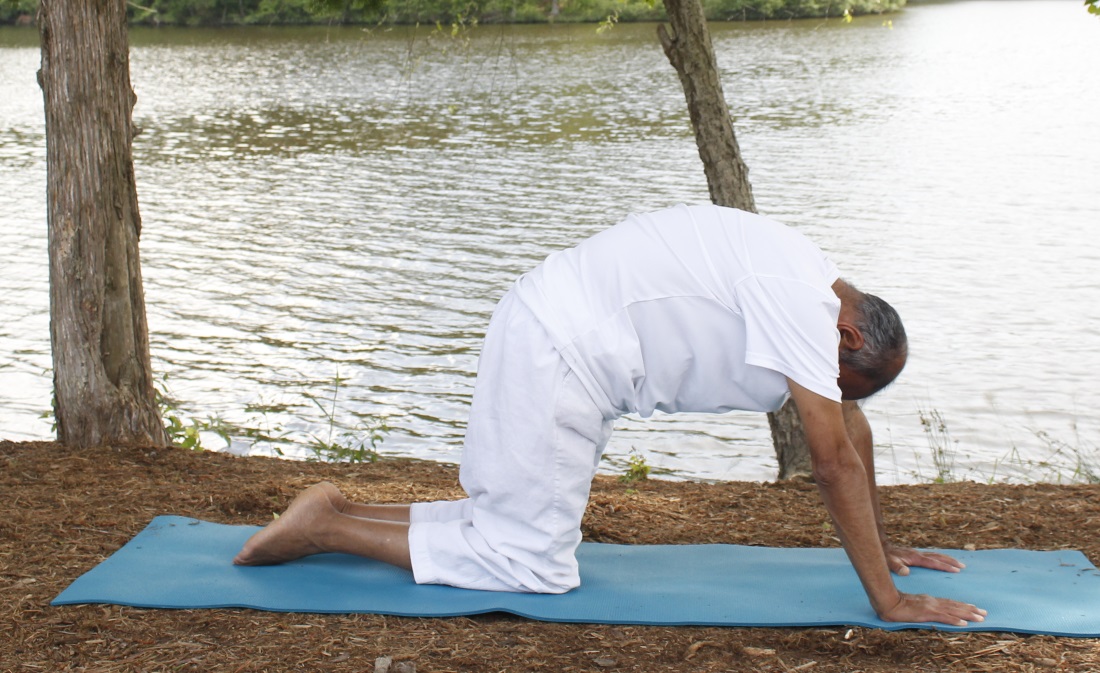 Cat Pose
In this article, I am presenting a few simple poses that can help strengthen the back and relieve back pain. Back pain, especially pain in the lower back, is perhaps the single most common reason why people seek medical attention. This is also the most common cause why people come to yoga classes. On a quick google search, I found several studies that have confirmed that yoga indeed provides a lot of relief to backache sufferers. Despite the well-known benefits that can come with a regular yoga practice, it is strongly advised that in case of severe pain you consult with your doctor before commencing a yoga routine.
Most of the poses mentioned in this article have already been discussed individually in earlier blog articles. In this video I have combined these simple asanas for taking care of low back pain in a single video sequence. This way you can follow the video for this sequence to derive full benefits from the practice.
Continue reading »
 Virabhadrasana (Warrior2)
I am pleased to announce the next 21-day Yoga Immersion program. The past programs have been very well received by all the participants. For most of them, it has been truly a life-transforming experience. I invite you to join me on this exciting and deeply rewarding 21-day yoga journey. Here are the particulars:
- What: 21-day yoga immersion
- When: Thursday, Aug 11- Wednesday, Aug 31, 2016
- Time: 6:00 AM – 7:30 AM
- Where: 4000 Bear Cat Way, Suite 102, Morrisville, NC 27560
- Cost: $125
Continue reading »
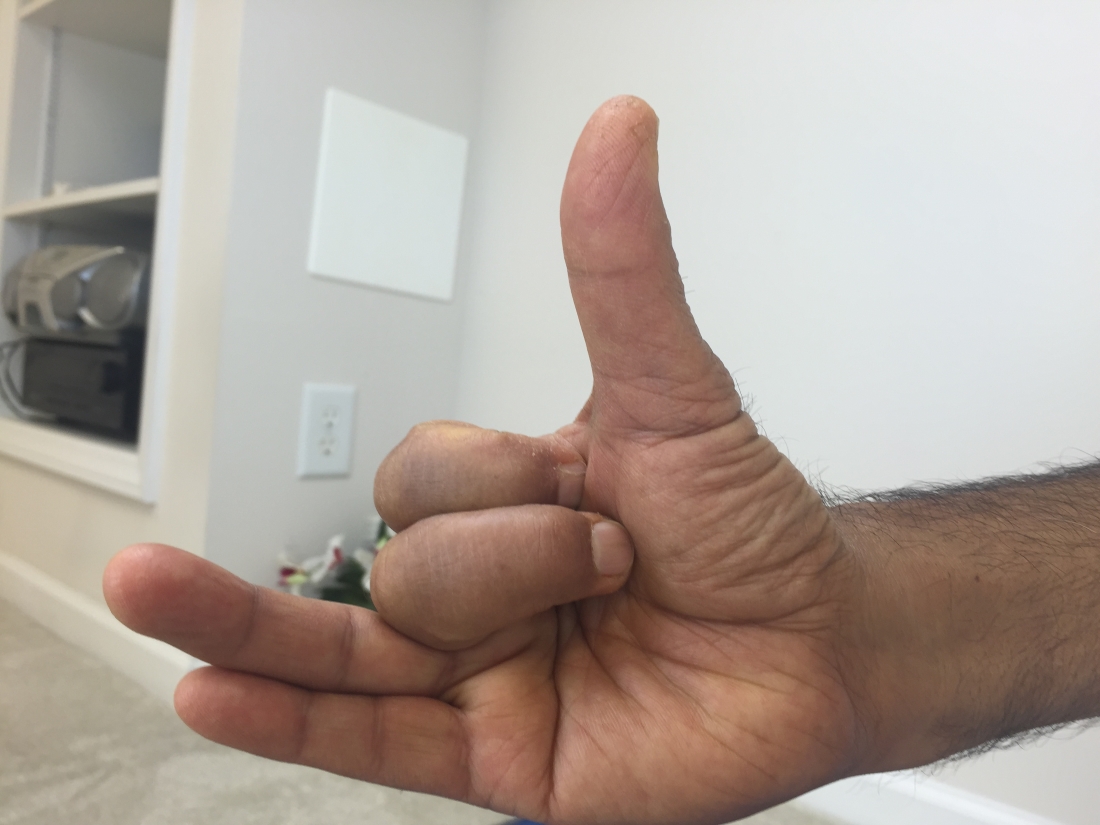 Vishnu Mudra
In an earlier blog post, I talked about the various pranayama variables that were given by Patanjali in the Yoga Sutras. Based on these variables, over a period of time, a large number of pranayama practices have evolved.
In this article, I would like to discuss a pranayama technique that involves fast breathing. As you know, practices like kapalabhati and bhastrika also involve fast breathing. However, in those techniques, either inhalation or exhalation or both are forced out in short bursts of breath. In this technique called Rapid Breathing, both inhalation and exhalation are even and unforced. That means both are of the same duration, and there is no force used either during inhalation or exhalation. Also, there is no conscious effort to breathe deep breathes. We allow the breaths to just "happen".
Continue reading »
|
Video DVD
Yoga with Subhash (asana and pranayama)
- Basic asana sequence (~50 min) ($18)
- Pranayama/Meditation (~35 min) ($12)
- Set of above two ($25)
Video recording of special programs offered in the past
(Links to YouTube videos will be provided)
- 21-day yoga immersion - $40
- 7-day hip opening intensive - $20
- 14-day meditation intensive - $30
- 14-day pranayama intensive - $30
- 7-day hamstring/quad intensive - $20
- 14-day Level 2 yoga intensive - $35
Payment options:
- cash, check, Zelle (use subhashmittal@gmail.com) or Venmo (use 9199269717)
- PayPal (go to bottom of page) (add $5 to the fee listed above)
Please contact me if you would like to buy.
Recent Posts
-
40-minute Yoga sequence with asana, pranayama and meditation
-
FREE Yoga Class, Jan 1, 2026, 8:00-9:30 AM
-
21-day Yoga Immersion, Jan 5-25, 2026
-
FREE 2-day Pranayama session, Dec 20-21, 2025
-
Saṃskāra and Vāsanā: deep-seated impressions that mold our lives
-
14-day Meditation Intensive, Nov 9-22, 2025
-
Supta (Reclining) Vajrasana
-
Enjoying the journey
|








Recent Comments